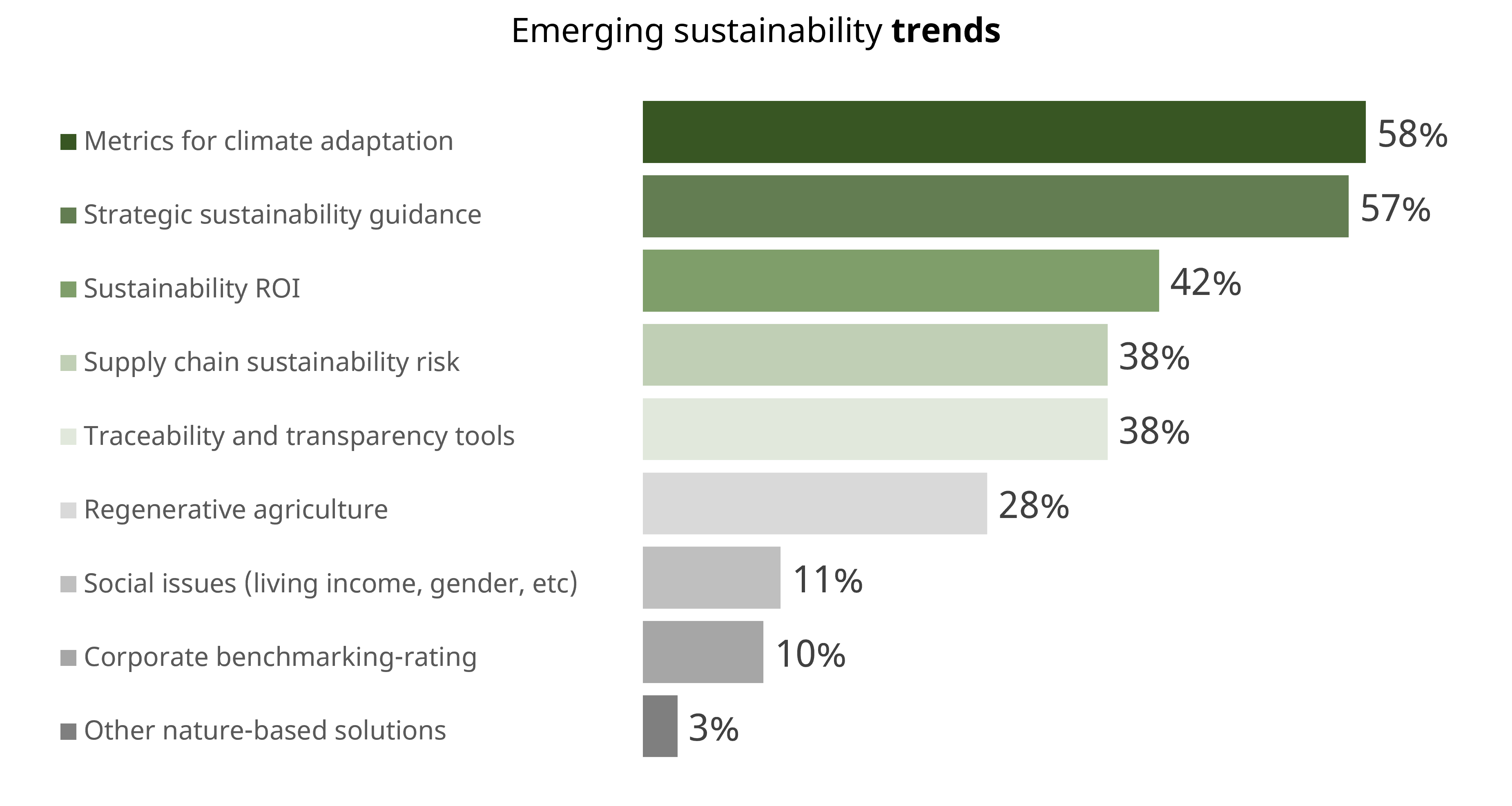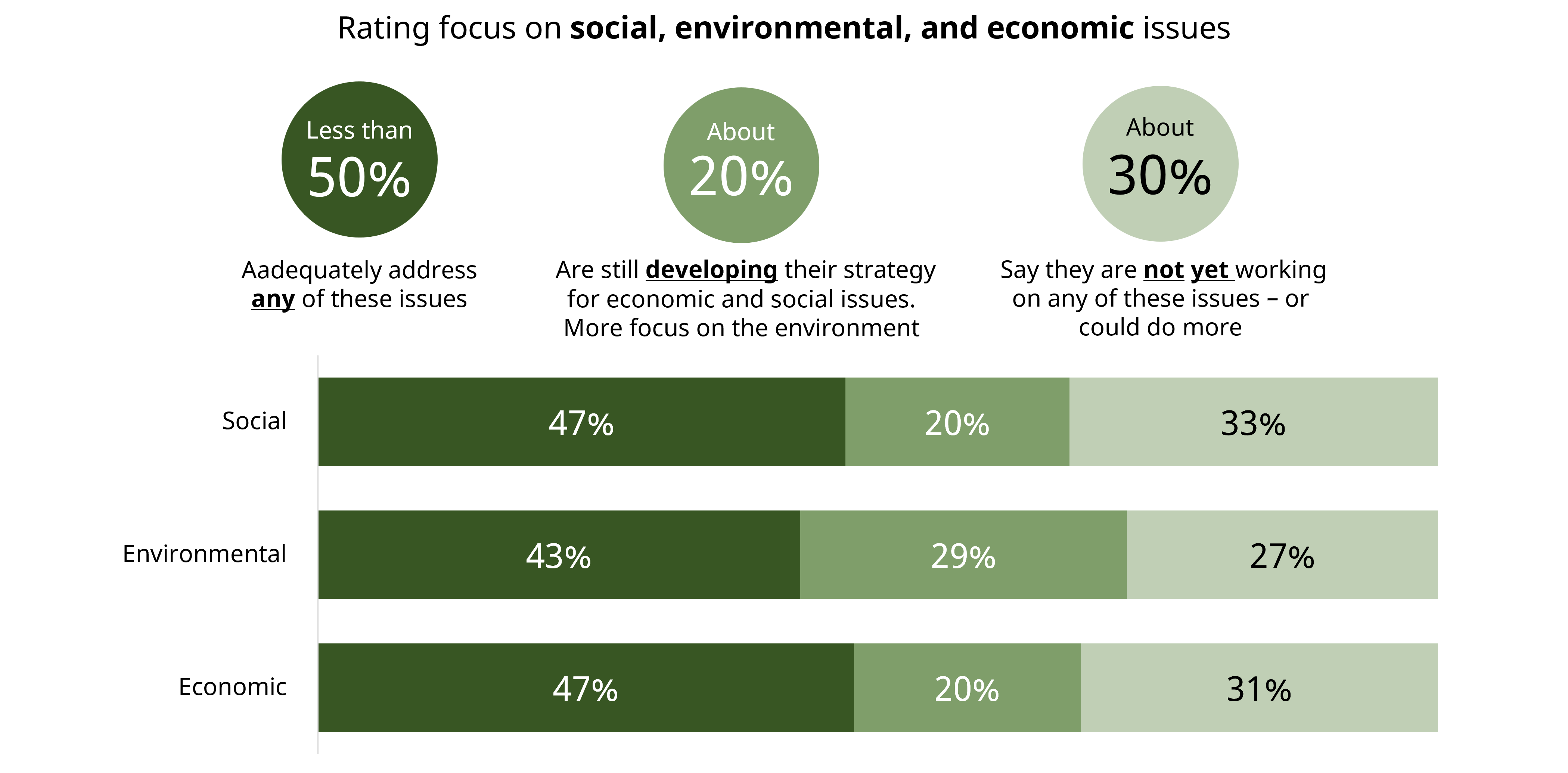We queried nearly 150 senior experts, from across the sustainability spectrum recently. Here are some of the revealed insights. The two most important sustainability trends or needs going forward are metrics for climate adaptation and strategic sustainability guidance for taking better decisions.

Our understanding of sustainability is continually evolving. Checking the pulse of our colleagues is evidence of that dynamic. Just five years ago, sustainability professionals were more interested in areas like cost-effectiveness in data collection and analysis, and dashboards for real-time monitoring. These needs, though still important today, are now largely met with low-cost performance monitoring tools, and an evolution of systems to provide real sustainability intelligence. It is clear that the work has to push much further. We are already deeply engaged in next-gen technology for more agile ways to understand sustainability performance.
Respondents proposed that COSA is well suited to focus on some key areas.
Climate solutions and metrics are becoming the main discussion. “Increasing climate instability is making life ever harder for farmers,” one expert told us.. Developing indicators and metrics, with broad agreement from experts, that focus more on climate adaptation factors is important. Adaptation factors, rather than only measuring carbon, are valuable in that they can lead to resilience and even lower carbon as well. Understanding adaptation measures is more valuable than basic carbon metrics that have little relevance to the near-term viability of many small or poor farmers.
Embedding sustainability into procurement operations is now considered an essential business process or, as one survey respondent put it “Integration of supply chain considerations for managing risks”. But for many, there is little clarity on how to do that. As we note in our recent article on the value of ESG reporting vs performance, most of the CEOs surveyed recently revealed in a Harris Poll for Google that they do not have realistic sustainability metrics or tools in place.
Sustainability leaders who took our survey concurred and also gave us insights into how well they think their own organizations address, in practice, the three key pillars of sustainability. The response was somewhat surprising, and not very good.
- Less than 50% say they adequately address any of the economic, social, and environmental sustainability issues.
- About 20% say they are still developing their strategies.
- And about 30% say they are not yet working on any of these or could do more.

As an organization that believes deeply in assessing our own work, we are pleased to know that our colleagues see credibility and a comprehensive approach as COSA’s two most significant contributions or competencies in measuring sustainability, followed by the recognition of a notably pragmatic.

In the survey, and others we conduct, stakeholders, clients, and partners have helped us to understand that among COSA’s contributions is being a neutral authority that fosters pragmatic approach to rigor in measurement. Maintaining our transparency and independence in data collection and analysis helps us to effectively offer strategic approaches that work while evaluating supply chain partners and service providers for ROI and impact. So, rest assured that we are always listening to the expressed needs of those who want to credibly advance sustainability performance.





